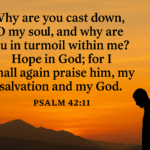In every generation believers have wrestled with a single, electrifying question: Has God stopped interrupting the natural order, or does He still stretch out His hand in power today? The Bible brims with spectacular moments—seas parting, the blind receiving sight, the dead rising—yet we live in an age of lab reports and livestreams, where skepticism feels more “reasonable” than faith. So, do miracles still exist? The answer carries enormous weight, because it shapes how boldly we pray, how fiercely we hope, and how courageously we live.
Scripture never treats God’s wonder-working acts as museum pieces. When the psalmist recalls the Red Sea, he isn’t reminiscing about a bygone era; he is urging Israel to expect the same God to protect them in the present. The New Testament doubles down on this expectation. Hebrews 13:8 declares that “Jesus Christ is the same yesterday and today and forever,” tying the constancy of Christ’s character to the ongoing possibility of divine intervention. James, the half-brother of Jesus, assumes that the local church will witness healing when elders pray and anoint the sick with oil (James 5:14-16). The biblical worldview is unapologetically supernatural—and unapologetically contemporary.
Church history echoes that conviction. From Augustine’s meticulous record of healings in North Africa to the Wesleyan revivals accompanied by sudden cures and deliverances, credible voices across the centuries report events science cannot fully explain. These testimonies are not reckless rumors; they are examined, documented, and, in many cases, corroborated by hostile observers with nothing to gain. The miracle stories that survive rigorous scrutiny reveal an unbroken line of divine fingerprints reaching into every era, including our own.
Modern medicine further illuminates God’s handiwork rather than displacing it. When an oncologist compares before-and-after scans and murmurs, “I can’t explain this,” faith hears an echo of Jesus saying, “With man this is impossible, but with God all things are possible.” Advances in technology actually tighten the net around false claims, making genuine anomalies shine brighter. Verified remissions, impossible timings, and lives transformed overnight testify that the Creator still writes new chapters in the book of wonders.
Yet miracles were never intended as spiritual fireworks for bored spectators. In Scripture they function as signs—pointer-posts to God’s character and the coming kingdom. When Jesus feeds a multitude, He reveals that the Father is generous and that a day is coming when no stomach will growl again. When He raises Lazarus, He unveils a future where death itself will be swallowed in victory. Every miracle is both a compassionate act in real time and a prophetic preview of eternity.
That purpose remains unchanged. Today’s miracles continue to unveil the heart of God and foreshadow the renewal of all things. The recovering addict who walks free after prayer, the marriage restored on the brink of ruin, the prodigal child who returns home—all are living parables of the gospel’s power. They remind the Church that her message is not theory but resurrection life.
Still, honest believers admit frustration. Not every prayer is answered with visible power; not every sickness bows in the present tense. Even Paul left Trophimus ill at Miletus (2 Timothy 4:20). We inhabit the tension between the “already” and the “not yet”—Christ has launched the kingdom, but its full arrival awaits His return. In that gap, miracles occur as sovereign gifts, not on-demand services. We dare not treat God like a vending machine; we also dare not shrink our expectations to match our disappointments. Faith holds both truths: God can, and God is good, whether or not He chooses to.
So how should we live if miracles still exist? Pray larger prayers, rooted in Scripture and aimed at God’s glory. Saturate your mind with testimonies of His power; they fertilize hope. Refuse cynicism masquerading as sophistication. Serve boldly, knowing that the God who calls also equips. And when miracles do occur, trumpet them with humility—because every answered prayer is an invitation for someone else to believe.
Yes, miracles still exist. They are neither relics of a naïve past nor spectacles reserved for distant mission fields. They are love letters from a living Savior, penned in the ink of impossible outcomes, addressed to a doubting world. Open your eyes, keep your heart expectant, and step into your day convinced that the God of Exodus still parts seas and the Christ of Calvary still rolls stones away. The next page in the story of wonders may well be written in your own life—if you dare to ask, dare to believe, and dare to testify when heaven breaks through.



